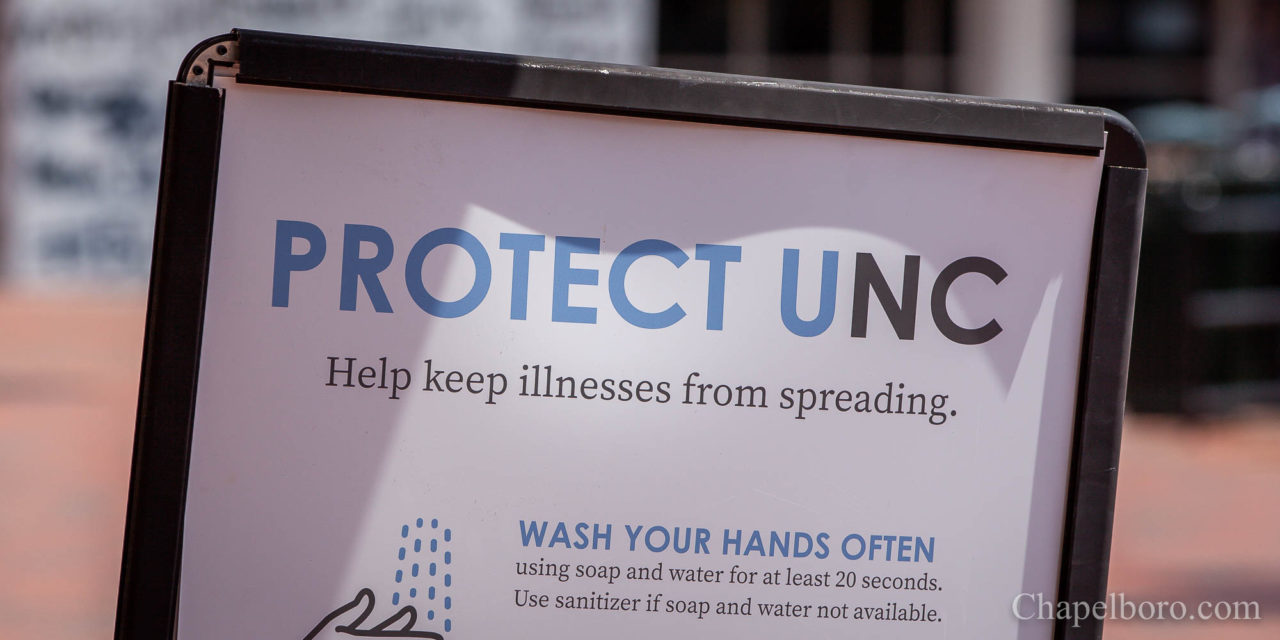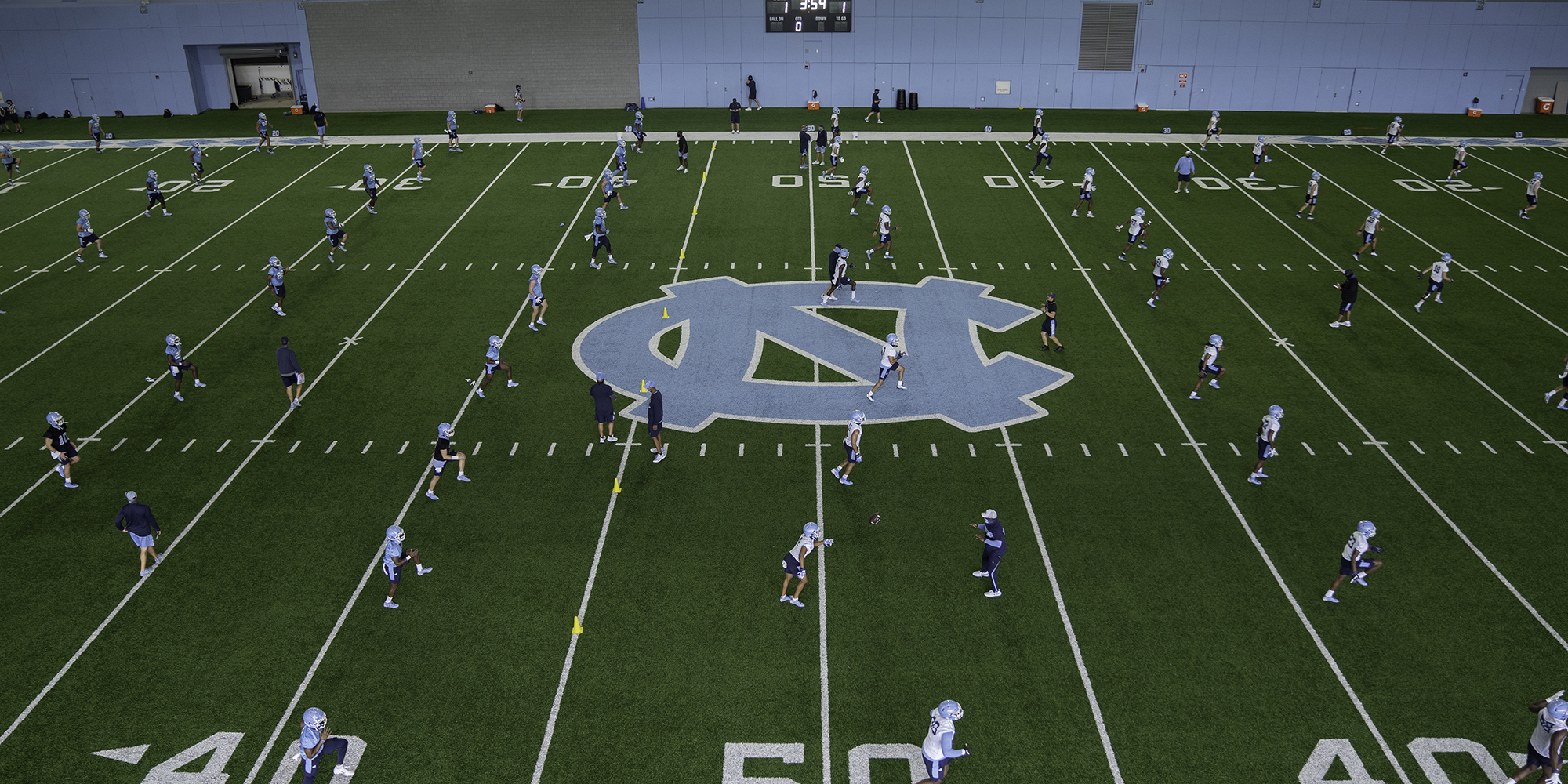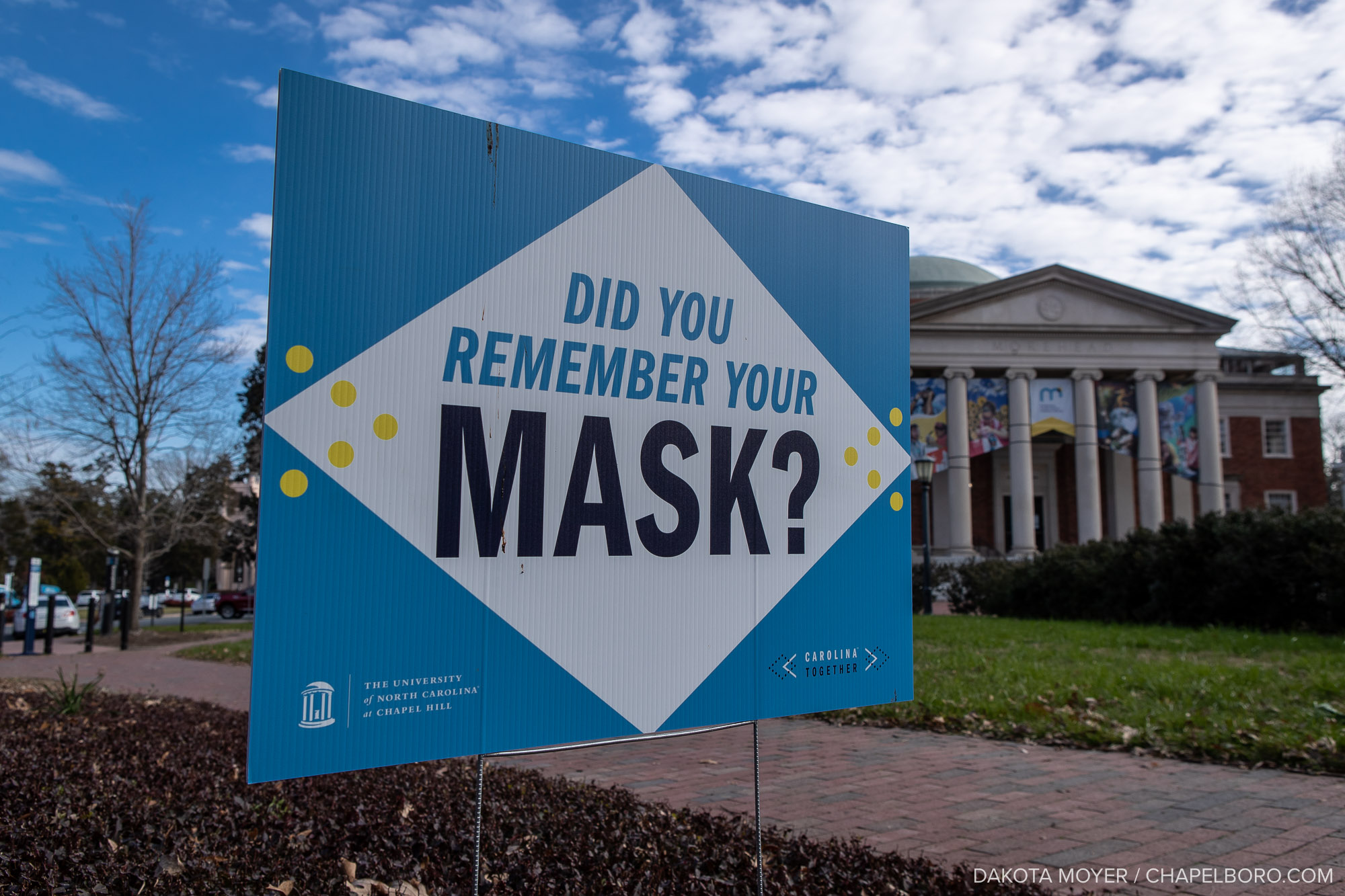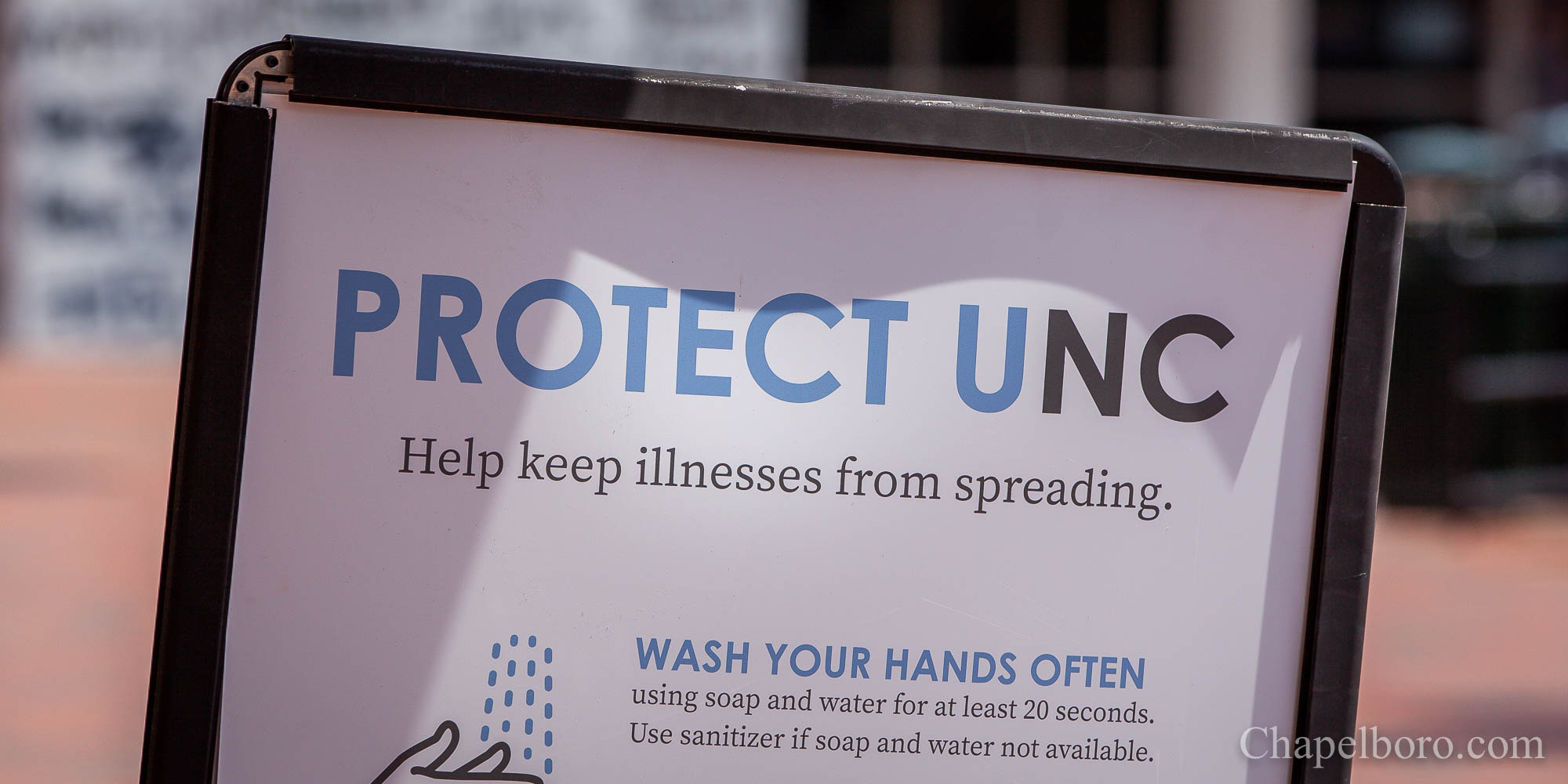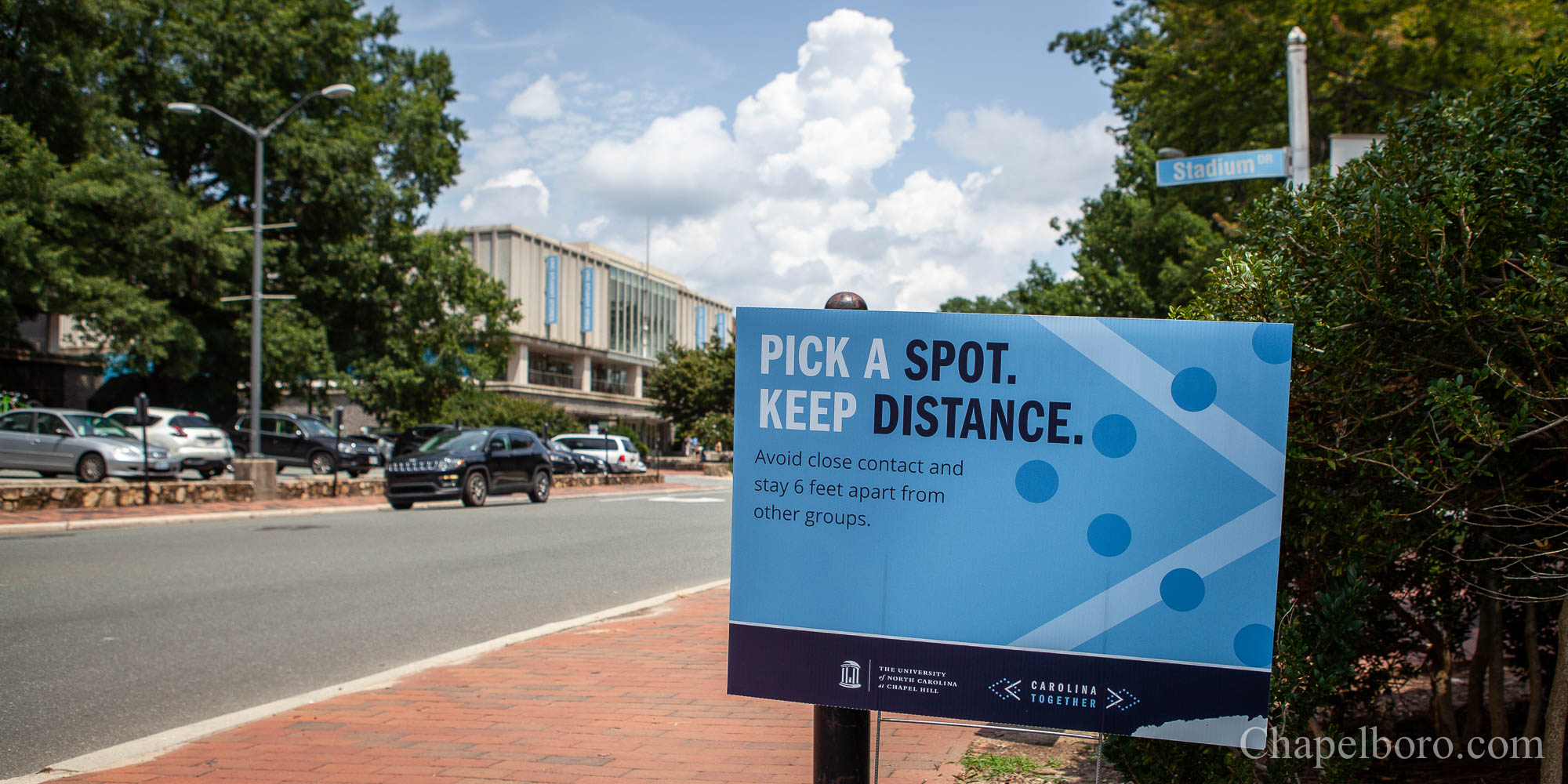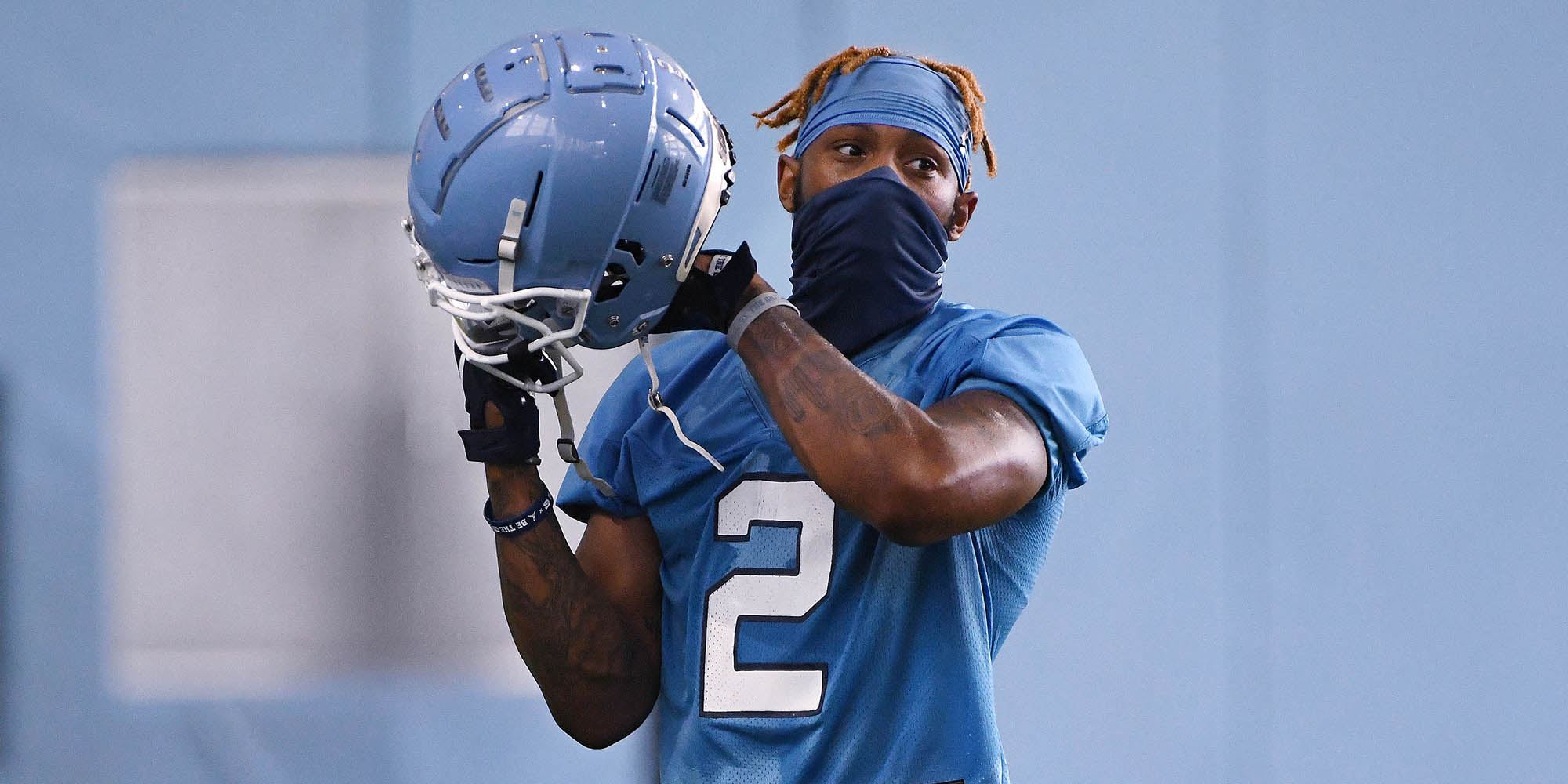UNC leadership announced the university will move to a remote learning model starting Wednesday, August 19, due to the ongoing spread of COVID-19.
Undergraduate courses will be shifted online in an effort “greatly reduce” residence hall occupancy, the university said in a message to campus community.
This is the second time the coronavirus pandemic has caused UNC leadership to move away from in-person instruction, as it initially did in March. The latest move will occur just ten days after the university began classes for its fall semester and will continue indefinitely.
“Since launching the Roadmap for Fall 2020, we have emphasized that if we were faced with the need to change plans – take an off-ramp – we would not hesitate to do so,” said UNC Chancellor Kevin Guskiewicz in a release, “but we have not taken this decision lightly.”
According to the latest data provided by the university on Monday, 130 students and five employees tested positive for the coronavirus the first week of classes. The update came after four COVID-19 clusters were identified around campus over the weekend: three in residence halls and another at the Sigma Nu fraternity house. Of the 924 tests administered last week, 13.6 percent returned positive, an increase from 2.8 percent the previous week.
UNC confirmed on Monday there are currently 349 students in quarantine, both on and off campus.
During a specially-called meeting of the Faculty Executive Committee on Monday, Guskiewicz cited the percent positive rate of students as being a “concern” to university leadership. He also said classes might be paused while the campus “de-densifies” after Wednesday’s shift to virtual classes.
The decision to shift to virtual learning was supported by the UNC System.
“There are no easy answers as the nation navigates through the pandemic,” said new System president Peter Hans. “At this point, we haven’t received any information that would lead to similar modifications at any of our other universities.”
On Monday, the Chapel Hill Town Council sent a letter to UNC System and UNC-Chapel Hill leadership requesting that the Board of Governors allow chancellors to decide whether to continue with reopening on their individual campuses.
The beginning of the letter reads, “On behalf of the entire Chapel Hill community, we are writing to express our continued concerns regarding the toll that the re-opening of the UNC campus is having on the health, safety and overall well-being of our entire community. If not addressed immediately, this situation will have irreversible and lasting repercussions.”
The letter references the four recent clusters as well as numerous off-campus parties and gatherings that show “disregard for the University’s Community Standards as well as state and local laws.”
The town council wrote that addressing these issues will be vital for the health and well-being of the community, as many students will remain in the community despite the university’s closing.
UNC’s plan for reopening the campus for the fall semester included strict health guideline, including the use of face masks at all times when on campus. In-person class sizes were also reduced and traffic in and out of campus buildings was regulated to prevent large gatherings.
In July, Orange County Health Director Quintana Stewart wrote a letter to campus leadership saying she received “massive amount of emails from community members, UNC staff, faculty and students sharing their concern for fully reopening campus for the Fall Semester” amid the coronavirus pandemic. Stewart recommended that the university begin its fall semester with virtual classes in an attempt to curb the spread of the virus.
Shortly before reopening, a viral video emerged on social media of a large group of young women — none of whom were wearing masks — emerging from a house a few blocks from UNC’s campus. In response, the Town of Chapel Hill increased the amount of police patrols downtown and in student neighborhoods leading into the first week of classes at the university.
In the past week, several videos have since emerged on social media showing additional cases of students gathering in large groups in and around campus.
According to the Centers for Disease Control’s guidelines for higher education institutions, UNC’s plan of opening its dorms for the potential of full capacity qualifies as the “highest risk” for spread of COVID-19. Ahead of the school year, the university allowed students to withdraw from their housing contracts in order to lower the occupancy of dorms. The latest housing data from UNC shows Granville Towers is less than 77 percent occupied, while the total on-campus occupancy rate is nearly 61 percent.
Chapelboro.com does not charge subscription fees. You can support local journalism and our mission to serve the community. Contribute today – every single dollar matters.

